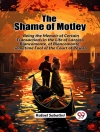Aphra Behn’s ‘Oroonoko’ is a compelling narrative that intertwines themes of love, freedom, and the brutal realities of slavery, set against the backdrop of colonialism in the 17th century. Behn’s innovative prose, characterized by its eloquent diction and emotional depth, challenges the prevailing literary norms of her time. The novella serves as a profound commentary on the moral dilemmas faced by its titular character, an African prince enslaved in Surinam, as it navigates the complexities of identity and autonomy amid colonial oppression. Written in a style that blends elements of both tragedy and adventure, it stands as one of the earliest English novels that discusses race and human rights, influencing future generations of writers.
Yazar hakkında
Aphra Behn (1640-1689) was a pioneering English playwright, poet, and novelist, whose work marked her as one of the first English women to earn a living by her pen. Born in the tumultuous period of the English Civil War, Behn’s life remains somewhat veiled in mystery, with various speculations about her early years and possible work as a spy for Charles II. Despite the vagaries surrounding her biography, Behn’s literary accomplishments are well-documented and continue to be studied for their innovative explorations of gender, power, and colonialism. Her novel ‘Oroonoko’ (1688) is especially renowned, offering one of the earliest examples of the novel form in English literature and providing a complex narrative of an African prince sold into slavery. Behn’s writing is characterized by a frank treatment of sexual politics and an acerbic wit, which can be seen in her numerous plays and poetry collections. Her oeuvre includes groundbreaking works such as ‘The Rover’ and ‘The Forced Marriage’, which stand as testament to her literary prowess and foresight. She is often cited as an inspiration for later generations of writers, particularly female authors who see in her a foremother of the feminist literary tradition. Her contributions to literature and her formidable presence as a writer in a male-dominated field render her an enduring figure in the canon of English literature.












